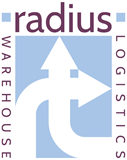Preparing for Brexit – A Guide Written By A Freight Forwarder
As of February 1st 2020, the Brexit withdrawal agreement came into effect. Britain became independent from the EU and, therefore, the regulations and rules around international cargo shipment changed. Whether you’re a large-scale business shipping multiple deliveries a month or an occasional seller, these changes will have an impact on things such as regulations, fees and duties. In this guide, we’ll break down what some of these changes may mean for you with first-hand experience from our team of freight forwarders.
What Does Brexit Mean for International Trade?
On December 24th 2020, both the EU and the United Kingdom announced that an agreement had been made. Under this, goods that originated in both regions could continue to be shipped under the normal duty and quota-free conditions, even after the Brexit transition period ended. This information came as welcome news to regular traders. The uncertainty surrounding this agreement had thrown into question the whole platform of international trade. As we entered 2021, additional changes came into play that continues to shake the industry as we know it.
As of January 1st, all goods crossing between the UK and any EU country are regarded as cross-border transactions. This means they must be accompanied by properly completed and accurate declarations (both import and export). In addition, the VAT exemption for low-value goods has ended and new rules have emerged about the rule of origins. For UK eCommerce and international traders, this has raised a number of new challenges. The increase in taxes and trade tariffs will mean an overall price increase in cost product and, inevitably, this will have to be passed on to retail price and the end customer. While the same goes across the board, this poses a challenge for those in the most competitive markets – specifically those who have used price as their USP for all these years. The increase in competition from EU sellers will also rise as a result, placing strain on our selling economy.
The new rules of origin regulations mean that imported goods that don’t originate in the UK do not fall underneath the free-trade deal. As a result, additional fees will be payable, again contributing to the need to increase prices overall.
How Will This Impact UK Businesses?
It was reported that £2.8 billion worth of online orders were made by customers based in the EU with 20% of retailers regularly selling to people in these countries. In reverse, the UK is classed as Europe’s biggest online retail market with sales in Germany and France estimated to reach £172 billion by 2025. Brexit is likely to impact these estimations, making it less appealing to order overseas rather than focusing either within the UK or in the EU, depending on where you’re based.
Additionally, if we consider the impact that COVID-19 has had on our spending habits, we are also likely to feel these new changes. During lockdowns, we were forced to focus all recreational spending activity on the online world. And, even as restrictions begin to lift, anxiety and worry around re-entering the world is likely to keep many people in this frame of mind. Businesses themselves have pivoted their plans, moving towards a more eCommerce focused model and finding innovative ways to sell their products and services online. When we take away the ease of expanding these customer bases into the EU, we’re faced with additional challenges.
And, What Is the Impact for Freight Forwarding?
After Brexit, the UK will have its own customs border between itself and the EU. This will increase the amount of paperwork needed to move cargo along with increasing the VAT payable on low-value goods. While the Simplified Customs Procedure is set in place to delay this additional requirement, it is still something that needs to be considered for those looking to expand in the long term.
These changes pose a new learning curve for freight forwarders. Where once we had a grasp on the system, the new complex customs regulations will take time to understand and get used to. We also expect this influx in new regulations to result in a spike to freight forwarders. The world of international shipping is complicated enough – let alone with stark changes such as these. In fact, the UK government has recommended that businesses use a freight forwarder in order to avoid errors, delays and/or fines.
How Can I Prepare for International Trade Post-Brexit?
As a business owner, you can do things to make sure you’re prepared for these new changes. Our top tips are:
- If you’re a new importer or exporter, you will need an EORI number. To get one, you need to register with customs.
- Revise your existing Incoterms and make sure all EU customers and suppliers have access to the new information.
- Research freight forwarders or decide if you’re going to keep the decisions in house. If so, make sure to do your research and understand the new regulations as thoroughly as possible.
- Allocate responsibility for the new digitally pre-notification of customs documents to a member of your team. This stage is crucial and could cause significant delays if it’s overlooked.
- Check your insurance policies, cover the new system and make adjustments or updates, if needed.
- Organised your harmonised system of coding for your goods to make it easier when passing through customs.
- Keep a full record of all international trade. The UK government requires you to do this for a period of 4 years at a minimum.
The Radius Warehouse and Logistic Services team have over 25 years of experience in worldwide cargo shipments. As a member of the BIFA and a dedicated independent freight forwarder, we’re here to support your business as you continue to gain international trade. If you would like to speak to a member of our team about the Brexit changes, get in contact with our team here today.



